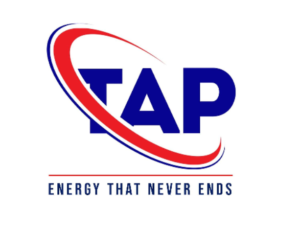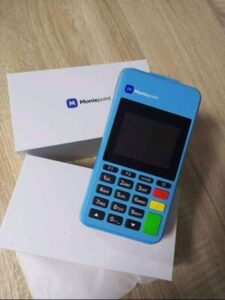In the vibrant cultural tapestry of Nigeria, the significance of effective communication cannot be underestimated. However, for the Deaf and Hard of Hearing community, conventional spoken language often presents formidable barriers to accessing vital information and services.
This is where a “Sign Language Interpreter in Nigeria” becomes an invaluable bridge, facilitating seamless communication between the Deaf individuals and the hearing world. In this blog article, we explore the pivotal role of these skilled professionals in breaking down linguistic barriers, promoting inclusivity, and empowering the Deaf community with the ability to fully participate in various aspects of life.
Introduction
Sign language has being labelled the language of the deafs for ages now, but currently, that mentality has been remodified. In a diverse and dynamic country like Nigeria, where cultures, languages, and traditions intertwine, the essence of effective communication cannot be overstated. It forms the backbone of human interaction, enabling us to share ideas, emotions, and knowledge. However, for the Deaf and Hard of Hearing community, traditional spoken language does not suffice, leading to barriers in accessing essential information and services.
In this blog article, we delve into the critical importance of hiring sign language interpreters in Nigeria, shedding light on the transformative impact they have on the lives of the Deaf and Hard of Hearing individuals.
What is Sign Language About
Sigh Language which can be categorized into different “sub-levels” or “Dialect” has stood the fate of time and is the next high level language replacing signal codes.
Just as spoken language relies on sounds and words, sign language utilizes a combination of handshapes, facial expressions, body movements, and spatial elements to create a coherent and comprehensive mode of communication.
Far from being a universal language, each country and region often has its own unique sign language, reflecting the diverse cultures and communities around the world. With its intricate grammar and vocabulary, sign language enables Deaf individuals to engage in complex conversations, express emotions, share stories, and access information, fostering a sense of belonging and empowerment within their community.
Why Hire a Sign Language Interpreter in Nigeria
Hiring a sign language interpreter in Nigeria holds paramount importance in fostering a truly inclusive and equitable society. By bridging the communication gap between the Deaf or Hard of Hearing individuals and the hearing world, these skilled professionals play a pivotal role in breaking down barriers and promoting accessibility in various domains of life.
First and foremost, sign language interpreters enable Deaf individuals to actively participate in social interactions, educational settings, and professional environments. This empowerment leads to increased confidence, self-esteem, and a sense of belonging within the community. Education becomes more accessible for Deaf students, as they can fully engage in classroom discussions and grasp complex concepts, ensuring equal opportunities for academic success.
In the workplace, sign language interpreters facilitate effective communication between Deaf employees and their hearing colleagues, creating an inclusive environment that nurtures diverse talents and perspectives. Employers who prioritize sign language interpretation services demonstrate their commitment to diversity and inclusivity, which can result in higher employee morale and productivity.
Moreover, in critical situations like medical appointments, legal proceedings, or emergency services, sign language interpreters ensure that Deaf individuals comprehend essential information accurately, making informed decisions about their health, legal rights, or personal safety. In these scenarios, access to a qualified interpreter can be a matter of life and death.
Beyond the immediate advantages for Deaf individuals, hiring sign language interpreters promotes awareness and understanding of Deaf culture among the hearing population. It encourages a more compassionate and accepting society, breaking down stereotypes and dispelling misconceptions about the Deaf community.
Where can you use Sign Language
Sign language can be used in various settings and situations to facilitate communication for individuals who are Deaf or Hard of Hearing. Its versatility makes it applicable in both formal and informal contexts, enhancing accessibility and fostering inclusivity. Here are some common places and situations where sign language is used:
Education
Sign language is utilized in schools, colleges, and universities to support Deaf students in their learning journey. Sign language interpreters are often present in classrooms to translate lectures and discussions, ensuring that Deaf students have equal access to education.
Workplaces
Many workplaces provide sign language interpretation services to enable effective communication between Deaf employees and their hearing colleagues, supervisors, or clients. This inclusion in the workplace ensures that Deaf individuals can actively participate in meetings, training sessions, and other work-related interactions.
Public Events
Sign language interpreters are often seen at public events such as conferences, seminars, workshops, and cultural performances. Their presence ensures that Deaf attendees can fully engage with the content and activities of the event.
Medical Settings
Sign language interpreters play a crucial role in healthcare settings, ensuring that Deaf patients understand medical diagnoses, treatment plans, and other important information during doctor visits, hospital stays, or therapy sessions.
Legal Proceedings
In legal settings such as courtrooms or during police interactions, sign language interpreters facilitate communication between Deaf individuals and legal professionals, ensuring that Deaf individuals can participate fully in the legal process.
Social Gatherings
Sign language can be used in casual social settings, allowing Deaf individuals to communicate with friends, family members, and acquaintances. It enriches social interactions and strengthens connections within the Deaf community.
Broadcasting and Media
Some television programs, online videos, and news broadcasts incorporate sign language interpretation for the benefit of Deaf viewers, promoting accessibility to important information and entertainment content.
Emergency Services
During emergencies or disasters, sign language interpreters are crucial in providing critical information and instructions to Deaf individuals, ensuring their safety and well-being.
Some Basic Signs – Video
Benefit of Learning Sign Language
Asking this question on Google can fetch you over 1 million results. Sign language on the minimum is known for over 50 benefits. Let highlight some of the key benefits.
Improves Spelling and Retention – Behavioural Research shows that children who learn simple sign language skills improves their spelling and retentive skills. Signing helps users remember spelling words mentally and that makes it hard to forget.
Improves Discreet Communication- Do you know giving out a rose 🌹 sends a message? Do you know hugging at some situations sends a signal and message? Sign language builds body language skills, emotional skills and mental communication skills.
Sign Language Builds Contextual Vocabulary – This is certainly one of the most important one. Some signs in ‘sign language’ defines themselves. You have very little or no time thinking of meanings.
Secret Level and Distant Communication –
Sign language is being use by every average person 10-25 times daily. Two signers don’t need come close to talk, signing from far distance is far enough.
This is just some of the many benefits of learning Sign Language.

Where to Learn Sign Language
Unlike normal English Language, Some signs in Sign Language is being updated with according to Geo-location and traditions.
The Nigerian Sign Language (NSL) has been adapted from the American Sign Language (ASL), incorporating localized signs and gestures to suit the Nigerian Deaf community. While YouTube can serve as a primary alternative for learning Sign language, Team Xycinews provides official training on both American Sign Language and the Nigerian Sign Language.
For those interested in learning Sign language through Xycinews Media, a mail can be sent to admin@xycinews.com, with the subject line “Sign Language Learning Package.” Unlike many other Sign Language Classes, Team Xycinews offers comprehensive Sign Language Tutorials at an incredibly affordable rate, making it accessible to all who seek to acquire this valuable skill.
How to Count to 20 in Sign Language – Video
Where to Hire A Sign Language Interpreter in Nigeria
As stated previously, we proudly provide complimentary Sign Language training accessible to users across the globe. However, kindly note that our interpreting services are exclusively available within Nigeria, and we cater to events held within the country.
If you wish to engage our professional sign language interpreters for your event, please send us an email by clicking the following link: admin@xycinews.com. In the email subject, kindly specify “Sign Language Interpretation Service” to ensure a prompt and tailored response to your request.
If you found this article beneficial, we encourage you to share it with your friends and family, extending the reach of valuable information on sign language and accessibility. Thank you for your support.












2 Responses
You made some clear points there. I did a search on the subject and found most persons will approve with your blog.
Ok